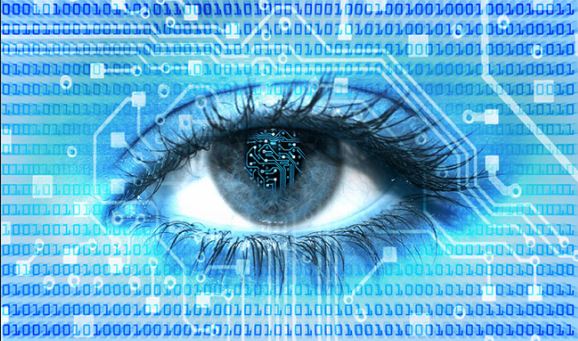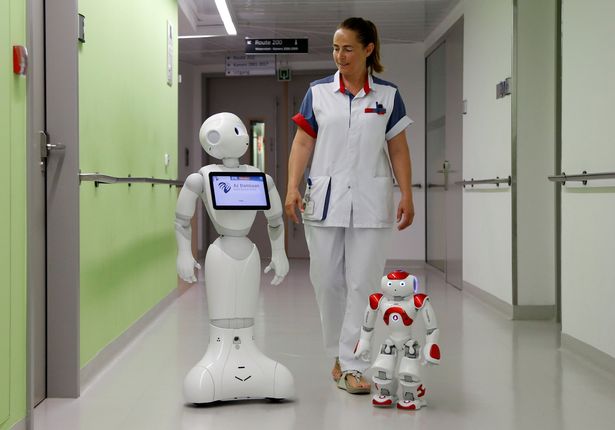 Parler
Parler Gab
Gab
- JPMorgan’s new headquarters enforces mandatory biometric enrollment (fingerprints or eye scans) for employee access, despite earlier indications it would be voluntary.
- The bank has not clarified how long data will be stored, who controls it, or whether employees can opt out without penalty.
- Unlike states with biometric privacy laws (like Illinois), New York lacks strong protections, leaving workers vulnerable to misuse of their data.
- The policy aligns with a broader corporate push toward "frictionless" surveillance, raising concerns about tracking productivity, attendance, and movement.
- Critics warn that once biometric data is compromised, it cannot be reset like a password—making this a permanent risk for employees.
The fine print of "security"
JPMorgan insists the biometric system is about safety and efficiency, pointing to high-profile crimes in Midtown Manhattan—including the 2024 killing of UnitedHealthcare CEO Brian Thompson—as justification. But security upgrades shouldn’t come at the cost of fundamental privacy rights. Employees were initially told the program was voluntary, but internal communications reviewed by The Financial Times reveal that language has vanished. Now, enrollment is compulsory unless an undisclosed exemption applies. The bank’s silence on data retention is deafening. Will fingerprints and iris scans be stored indefinitely? Can they be shared with third parties? Could they someday be linked to productivity metrics or disciplinary actions? These unanswered questions expose workers to potential abuse, with no legal safeguards in place. JPMorgan isn’t the first company to dabble in biometrics—U.S. Bank has tested voice authentication for customer service, and tech firms like Apple use facial recognition for devices. But mandating biometrics for physical access to an entire corporate campus is unprecedented in U.S. finance. It sets a dangerous template: if Wall Street adopts this, Main Street won’t be far behind. The lack of transparency is telling. The bank’s companion "Work at JPMC" app claims it collects "no data," yet it functions as a digital ID badge, tracking movement within the building. Pair that with biometric logs, and suddenly, employers have unprecedented visibility into who enters, when, and how long they stay—details that could easily morph into tools for micromanagement.Why New York’s weak laws enable overreach
Unlike Illinois, where the Biometric Information Privacy Act (BIPA) requires explicit consent and strict data handling rules, New York has no equivalent. A 2021 NYC ordinance exempts financial institutions entirely, leaving JPMorgan free to self-regulate. Without legal push back, this policy could spread unchecked. Labor advocates warn that "consent" is meaningless when refusal means losing access to your job. Biometric data is uniquely invasive—unlike a badge or password, you can’t reset your fingerprints. Once collected, it’s vulnerable to breaches, misuse, or even integration with future surveillance tech. The bigger picture: A world without privacy This isn’t just about JPMorgan. It’s about the steady march toward a world where our bodies become our IDs—where every movement is logged, every action monitored. From digital payment systems like PopID to central bank digital currencies (CBDCs), the infrastructure for total surveillance is being built piece by piece. The question isn’t whether biometrics can enhance security—it’s whether we’re willing to sacrifice autonomy for the illusion of safety. If corporations can demand our fingerprints today, what will they demand tomorrow? Sources include: Zerohedge.com TheGuardian.com Enoch, Brighteon.aiDon Lemon urges minority communities to arm themselves amid immigration crackdown
By Belle Carter // Share
A decade of delay: Internal FDA reports reveal unheeded warnings on Tylenol and pregnancy risks
By Willow Tohi // Share
Big Tech’s censorship surge: From manipulating opinions to silencing dissent
By Gregory Van Dyke // Share
Toyota recalls thousands of vehicles over defective seat rails and display malfunctions
By Kevin Hughes // Share
OpenAI launches Atlas AI browser, sparking security fears and a market shakeup
By Cassie B. // Share
Governments continue to obscure COVID-19 vaccine data amid rising concerns over excess deaths
By patricklewis // Share
Tech giant Microsoft backs EXTINCTION with its support of carbon capture programs
By ramontomeydw // Share
Germany to resume arms exports to Israel despite repeated ceasefire violations
By isabelle // Share









